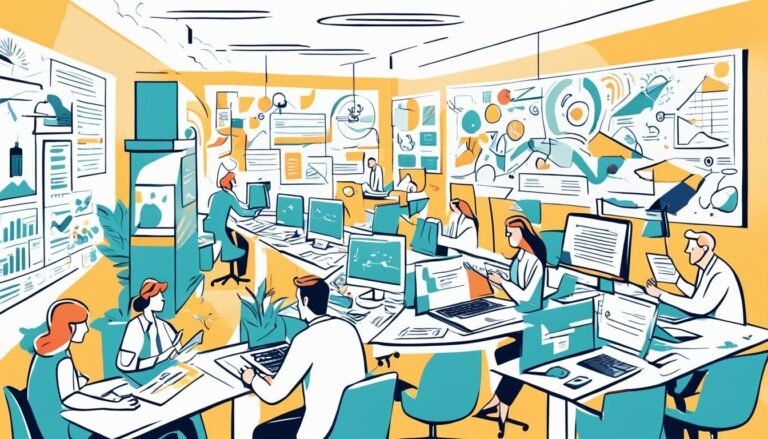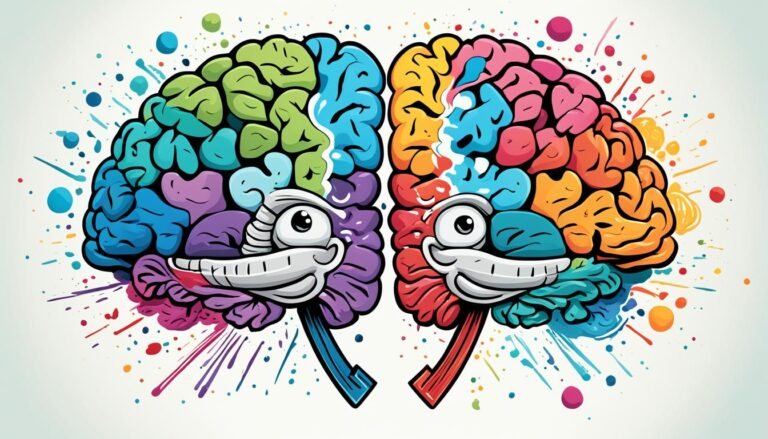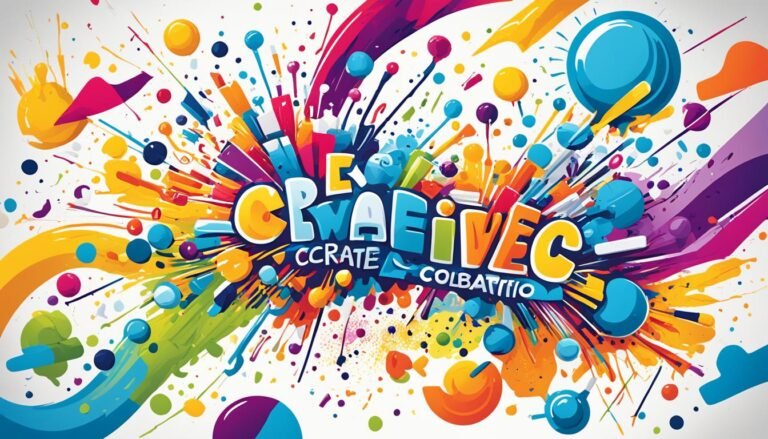The Future of Blockchain in Business Beyond Cryptocurrency
Blockchain isn’t just about Bitcoin and digital money. It’s changing traditional sectors and how businesses work. It’s more than a tool for handling cryptocurrencies.
At its heart, blockchain acts like a public ledger but without a main control. This means it tracks transactions in a way that’s very safe and clear. Everything is recorded in blocks of transactions that connect in order. This technology offers a new level of security and honesty, perfect for many business needs.
Using blockchain can make businesses better in several ways. It makes things run smoother, costs less, and sparks creativity. With blockchain, companies can build trust, boost safety, and stand out in their field.
Key Takeaways:
- Blockchain technology goes beyond cryptocurrency and has the potential to revolutionize various industries.
- Blockchain is a decentralized ledger that ensures transparency and security in recording transactions.
- Businesses can leverage blockchain technology to enhance efficiency, reduce costs, and develop innovative solutions.
- Adopting blockchain can help businesses establish trust, improve security, and gain a competitive edge.
- The future of blockchain in business is full of opportunities and transformative potential.
Understanding Blockchain Technology
Blockchain technology is changing how we handle and share data in many fields. It’s a decentralized, distributed ledger. This ensures transparency and security in transactions.
Information in blockchain is stored in blocks linked sequentially. This forms a decentralized ledger. Each block has a batch of transactions. Once recorded, this data is unchangeable.
This unchangeability means the info can’t be changed without network agreement. This trust and security in managing data are what make blockchain stand out.
Blockchain’s openness is vital. Since transactions are on a public ledger, anyone in the network can check them. This boosts accountability and trust.
“Blockchain is like a digital ledger that cannot be altered, providing an unprecedented level of transparency and immutability. It ensures that every participant in the network has access to the same information, creating a trustless and secure environment.”
Blockchain also makes data sharing easier and safer. It allows for sharing data without go-betweens. This streamlines work and lowers costs across many sectors.
Blockchain is a big change in handling data and sharing it. It uses its decentralized, transparent, and unchangeable nature to make operations more secure, trusting, and efficient.
As time goes on, blockchain is leading to a more connected and decentralized world.
| Benefits of Blockchain Technology | Applications |
|---|---|
| Transparency | Supply chain management |
| Immutability | Smart contracts |
| Data management | Healthcare |
| Data sharing | Voting systems |
Use Cases of Blockchain Technology
Blockchain technology is changing many fields by using its features in new ways. It does this by securely recording transactions. Let’s look at some key areas.
1. Supply Chain Management
For supply chains, blockchain promises clear records and traceability. This helps fight fake products, manage recalls better, and prove if things are real.
2. Smart Contracts
Smart contracts are written in code and run by themselves. They cut out the middleman, making deals faster and more reliable. This is handy in real estate, law, and entertainment.
3. Healthcare
In healthcare, blockchain makes sharing health data safer and smoother. It links different health systems to benefit care and scientific research. It also improves how privacy is handled. Blockchain tweaks how we get medical consent, protecting info better.
4. Voting Systems
For voting, using blockchain makes things more secure and clear. It logs votes in a way that stops fraud and keeps every choice unique. This makes election systems more trustworthy.
5. Decentralized Finance (DeFi)
DeFi changes banking by using blockchain for loans, trades, and more. It does this without the usual go-betweens. Smart contracts make such deals automatic and reliable.
“Blockchain technology lets many fields become more trustworthy, clear, and efficient.” – [Author Name]
These examples show how much blockchain can change industries. As it grows and is used more, even more features will come, opening new business paths.
Opportunities for Businesses
Blockchain technology gives businesses many chances to make their work better and stand out online. It makes everything more efficient, lowers costs, and boosts trust and security. This means companies can save money, do things faster, and grow bigger.
Improved Efficiency and Cost Reduction
Blockchains are great at making things work smoother. They can do tasks automatically and cut down on paperwork. This saves businesses money by defeating unnecessary costs and making them more profitable.
Enhanced Transparency and Trust
Blockchains are very clear and can’t be changed. This makes them perfect for showing that a company is honest. They allow everyone to see the truth about a company’s products and promises.
Security and Fraud Prevention
Blockchains are super safe. Since they are spread across many places, it’s hard for someone to attack them. They keep data safe and prevent fraud because they can’t be changed without anyone knowing.
Innovation and Competitive Advantage
Using blockchain tech can really make a company look more modern and different from others. It allows for new ways to do business, leading to unique products and services. This makes customers and partners more interested in what a company has to offer.
Blockchain technology presents businesses with opportunities for efficiency, cost reduction, transparency, trust, security, fraud prevention, innovation, and competitive advantage.
Blockchain tech holds the promise to completely change how businesses run. It brings a lot of chances for growth and success. Companies can streamline their work, win trust, and lead the market through the power of blockchain.
Now, let’s take a closer look at the specific use cases of blockchain technology in supply chain management, smart contracts, healthcare, voting systems, and more.
Supply Chain Management
Blockchain technology is changing the game in supply chain management. It offers full transparency and trackability from start to finish. This helps fight off counterfeit goods and make product recalls more efficient.
Using blockchain, every step and product move is noted down securely. This means we can see the supply chain in real time. It stops the spread of counterfeit goods and makes handling recalls faster and easier.
Blockchain also adds a layer of trust by verifying where products come from. With smart contracts and special codes, companies can make sure that their products are real and up to standard.
Big players like IBM already see how blockchain in supply chain management changes the rules. They are using it to be more transparent and trustworthy. With this tech, businesses can lower risks, work better, and have stronger ties with customers and partners.
Benefits of Blockchain in Supply Chain Management
Let’s look at what blockchain does for supply chains:
- Transparency: Blockchain opens up every deal and product move. This makes sure everything can be seen and checked through the supply chain.
- Traceability: Businesses can follow where their products come from and have been using blockchain. This makes sticking to rules easier and deals with quality and safety issues quicker.
- Combatting Counterfeit Goods: By using blockchain to check if products are real, companies can stop fake items. This also keeps their brand safe.
- Efficient Recall Management: During a recall, blockchain can quickly tell which products need to be brought back. It helps consumers and cuts recall costs.
- Enhanced Product Authenticity: With blockchain, businesses can prove their products are real. This boosts customer trust and belief in what they offer.
Case Study: IBM Food Trust
“IBM Food Trust, built on blockchain technology, improves food supply chain transparency, traceability, and authenticity.”
| Benefits | Features |
|---|---|
| Transparency | Real-time visibility into supply chain transactions |
| Traceability | End-to-end traceability of food products |
| Provenance Verification | Verification of food product authenticity and origin |
| Supply Chain Efficiency | Streamlined supply chain processes and reduced manual errors |
| Consumer Trust | Enhanced transparency and trust for consumers |
Smart Contracts
Smart contracts are changing how deals and contracts work with blockchain technology. They are written in code and run by themselves. They get rid of the need for go-betweens. This means deals are clear, can be followed easily, and are unchangeable.
Many fields like real estate, law, and the arts are being affected. Smart contracts make things easier, cheaper, and quicker in these areas. We’ll talk about how they are making a difference:
Real Estate
For real estate, smart contracts make buying, renting, or leasing properties smoother. They cut out brokers and lawyers. This saves money and time, and keeps everything clear. Blockchain smart contracts keep track of who owns what in a secure way.
Legal
In law, smart contracts are making signing and upholding deals different. By putting contracts on a blockchain, they manage themselves. This cuts out lawyers, which saves money and speeds things up. With self-executing contracts, legal matters become clearer, faster, and easier to get to.
Entertainment
The arts world can gain a lot from smart contracts. They make sure creators get paid fairly and on time. By using blockchains, these deals are open and safe. This means no more worries about others taking too much. It makes the business fair and smooth.
As technology grows, smart contracts will become more common in many areas. From buying homes to solving legal problems and making arts deals, they cut costs and make things clear.
“Smart contracts have the potential to disrupt traditional industries by eliminating intermediaries and bringing transparency to transactions. From real estate to legal and entertainment, the possibilities are endless.”
Comparison of Traditional Contracts and Smart Contracts in Real Estate and Legal Industries
| Traditional Contracts | Smart Contracts | |
|---|---|---|
| Intermediaries | Need brokers and lawyers. | Don’t need them. |
| Transparency | Hard to see what’s going on. | Clear and can’t be changed. |
| Cost | Costs more because of go-betweens. | Costs less without them. |
| Efficiency | Slow and needs a lot of steps. | Fast and does things on its own. |
| Security | Can be messed with and not very safe. | Safe and can’t be changed secretly. |
The chart compares old and smart deals in real estate and law. It shows how smart deals are better: they cut out middlemen, make things clear, cost less, run smoother, and are safer.
Healthcare
Blockchain could change how healthcare works. It makes sharing health data safe and easy, solving big problems for the industry. It allows a patient’s medical history to be seen all in one place, making it easier for doctors to understand their patient’s needs.
It also helps with getting patient permissions right. By storing who agreed to what on the blockchain, people’s privacy is better protected. This clear and secure way to handle permissions not only makes patients trust their healthcare team more but also makes things run smoother behind the scenes.
MedRec and other companies are looking into how blockchain can help in healthcare. They want to make data management and patient care better by using blockchain’s reliable and open features.
Using blockchain in healthcare is a big step forward. It helps doctors do a better job, makes things work more smoothly, and encourages new ideas. With blockchain, sharing health data safely, more research and working together become easier, benefitting everyone involved in healthcare.
Benefits of Blockchain in Healthcare:
- Secure health data exchange
- Enhanced interoperability
- Improved diagnostics and treatment
- Streamlined patient consent management
- Increased patient trust and privacy
- Opportunities for research and collaboration
“Blockchain technology has the potential to transform the healthcare industry by ensuring secure health data exchange, interoperability, and improved patient outcomes.” – Dr. Sarah Johnson, Healthcare IT Specialist
Voting Systems
Blockchain technology can change voting systems for the better. It makes voting secure and clear. By using blockchain’s special features like unchangeable records and trackable votes, trust in elections can grow.
When we use blockchain in voting, every vote goes on a blockchain. This makes votes safe from changes. The setup of blockchain means each vote is special and can’t be copied. This stops cheating in elections.
Blockchain also lets voters check their vote was listed correctly. This makes elections more transparent and trusted. The checks and balances on votes mean elections are more fair and right.
By using blockchain for voting, we could make big changes to how democracies work. This smart use of technology could make voting better and more open.
“Blockchain technology can change voting for the better, making it safe and clear.”
Advantages of Blockchain in Voting Systems
There are many good points to using blockchain in voting:
- Security: Blockchain makes sure votes are safe. It stops anyone from changing or copying them.
- Transparency: When votes go on a public blockchain, everyone can see what happens. This makes elections clear and open for checks.
- Traceability: Voters can be sure their vote is right and track the whole voting process.
- Enhanced Trust: Because of blockchain’s safety and clearness, people trust the voting system more. This brings faith in elections.
- Efficiency: Using blockchain can make voting work better and faster. This means less work for those who manage elections.
Blockchain has the power to make voting more secure, clear, and traceable. It might really change the way we do elections.
| Advantages of Blockchain in Voting Systems | Explanation |
|---|---|
| Security | Blockchain makes sure votes are safe by stopping changes and copies. |
| Transparency | When votes are public on a blockchain, everyone can see them. This makes elections clear and open to checks. |
| Traceability | People can check their vote and see the whole voting process. This makes voting more trusted. |
| Enhanced Trust | Blockchain’s safety and openess makes people believe more in elections. They trust the system more. |
| Efficiency | Using blockchain can make elections work better and faster. It lowers the work for election managers. |

Conclusion
Blockchain tech isn’t just for digital money; it’s changing the business world. It’s set to change many fields by providing new chances. As we move into a more digital age, those using blockchain will stand out.
With blockchain, companies can make their work better, find new ways to make money, and think up fresh business plans. This tech changes how businesses and their partners work together. It makes things more efficient, clear, and builds trust.
The business world’s future involves learning about and using blockchain. By jumping on this digital wave, companies can lead this big change and make the most of what’s coming. Now’s the time to see what blockchain can do for you and your business, keeping up in this quickly changing world.
Source Links
- https://www2.deloitte.com/mt/en/pages/financial-services/articles/mt-banking-alert-019-blockchain-is-coming-to-disrupt-your-industry.html
- https://www.linkedin.com/pulse/blockchain-beyond-cryptocurrency-use-cases-opportunities-businesses
- https://www.tdk.com/en/tech-mag/past-present-future-tech/impact-of-blockchain-technology-on-business








